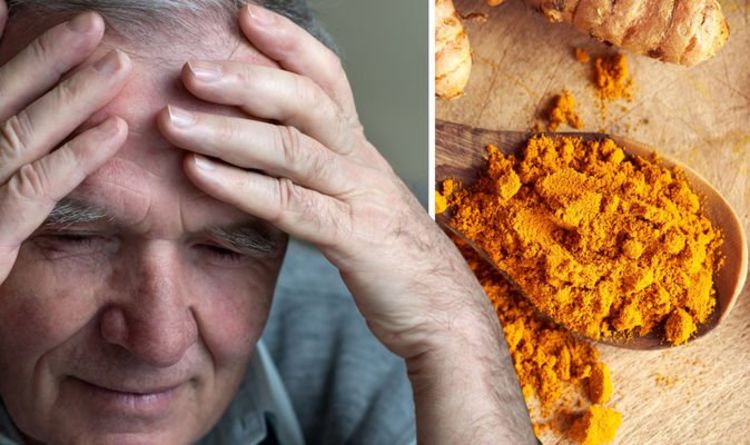Alzheimer's: Dr Chris discusses the early signs of condition
We use your sign-up to provide content in ways you’ve consented to and to improve our understanding of you. This may include adverts from us and 3rd parties based on our understanding. You can unsubscribe at any time. More info
An estimated 55 million people live with dementia around the globe, yet only a quarter have been formally diagnosed. This is because many brush off their symptoms as an inevitable consequence of ageing. The disease has recently become understood as a lifelong process determined by myriad lifestyle factors. Fortunately, one spice that is widely used throughout the UK could protect against the degradation of cognitive function.
Alzheimer’s disease is characterised by a gradual onset of symptoms, ranging from confusion to severe memory loss.
Harvard Health explains: “Alzheimer’s disease damages the brain’s intellectual functions. Short term memory is affected early.
“Gradually other intellectual functions deteriorate. Judgement becomes impaired. Most people with advanced AD lose their ability to do normal daily activities.”
Researchers believe India may enjoy lower rates of the disease due to the country’s widespread use of anti-inflammatory foods such as curry powder.

In fact, evidence that curry leaves protect against Alzheimer’s disease isn’t scarce.
The herb’s powerful antioxidants make it a strong candidate for treating diseases like Alzheimer’s, cancer and heart disease.
This was established during one study published in the Journal of Biological Chemistry, where researchers were able to study the effects of curry powder by injecting it into rodents.
Researchers found that mice who ate the spice had low levels of plaque in the brain – one of the hallmarks of Alzheimer’s.
The researchers established that curcuma could be “useful as a remedy in the management of Alzheimer’s and dementia, after administering an extract to mice”.
Gregory Col, professor of medicine and neurology at the David Geffen School of Medicine at UCLA, noted: “The prospect of finding a safe and effective new approach to both prevention and treatment of Alzheimer’s disease is tremendously exciting.”
It’s been speculated that the plant’s compounds protect cells, tissues and arteries against the damaging effects of free radicals in the bloodstream, according to WebMD.
In fact, other studies have previously established that spices like curcumin could reduce plaque better than over-the-counter painkillers, which are taken by some to lower the risk of AD.

Separate research by the University of California showed people who take curcumin saw their memory improve by 28 percent over the course of 18 months.
How to avoid dementia
The NHS states that “there is no certain way to prevent all types of dementia, as researchers are still investigating how the condition develops.
“However, there’s good evidence that a healthy diet can help reduce your risk of developing dementia when you’re older”.
It’s been widely asserted that lifestyle factors that protect the heart may also lower the risk of brain decline.
This is partly because some cardiovascular diseases such as stroke and heart attacks are themselves risk factors for dementia.
The Alzheimer’s Association explains that breaking a sweat helps protect the brain by increasing blood flow to the brain, as does adhering to a healthy diet.
Staying intellectually engaged, by learning or reading, could also avert brain decline, adds the health body.
Source: Read Full Article
